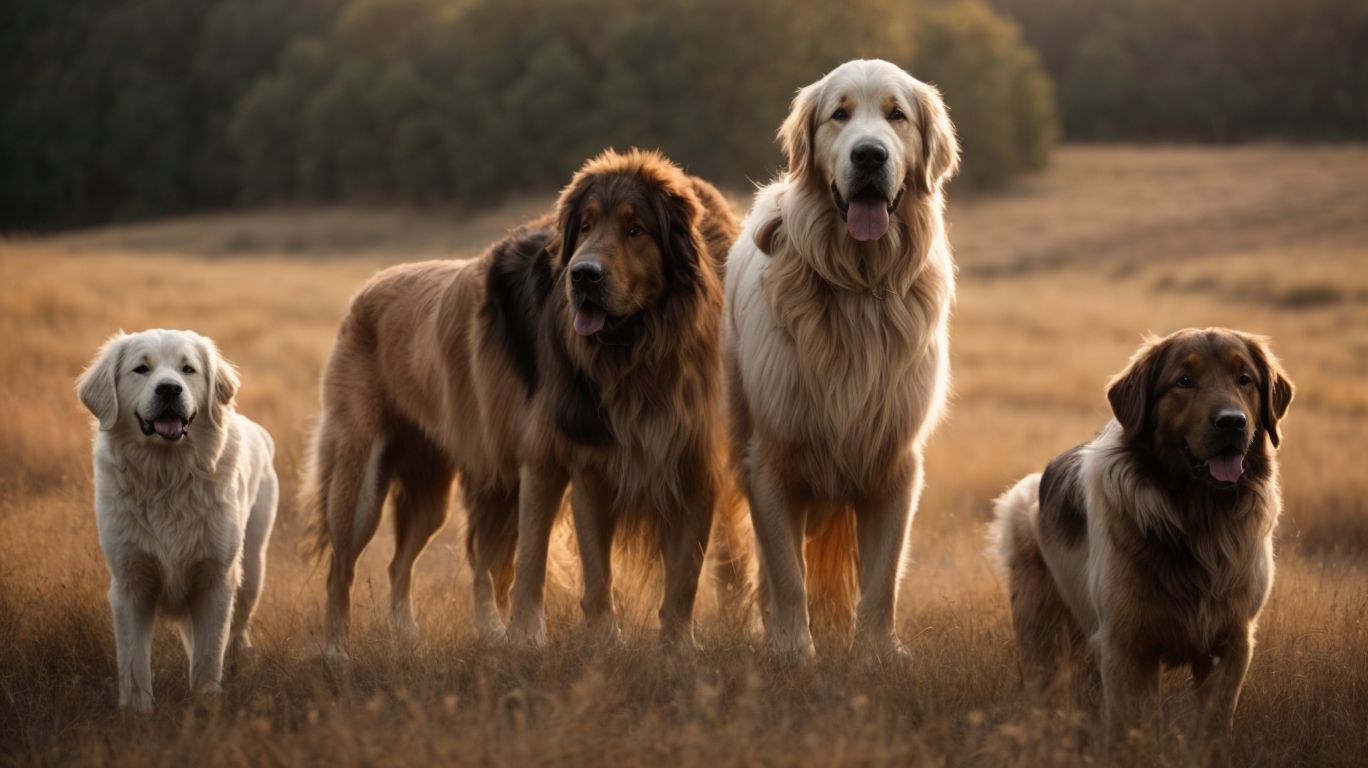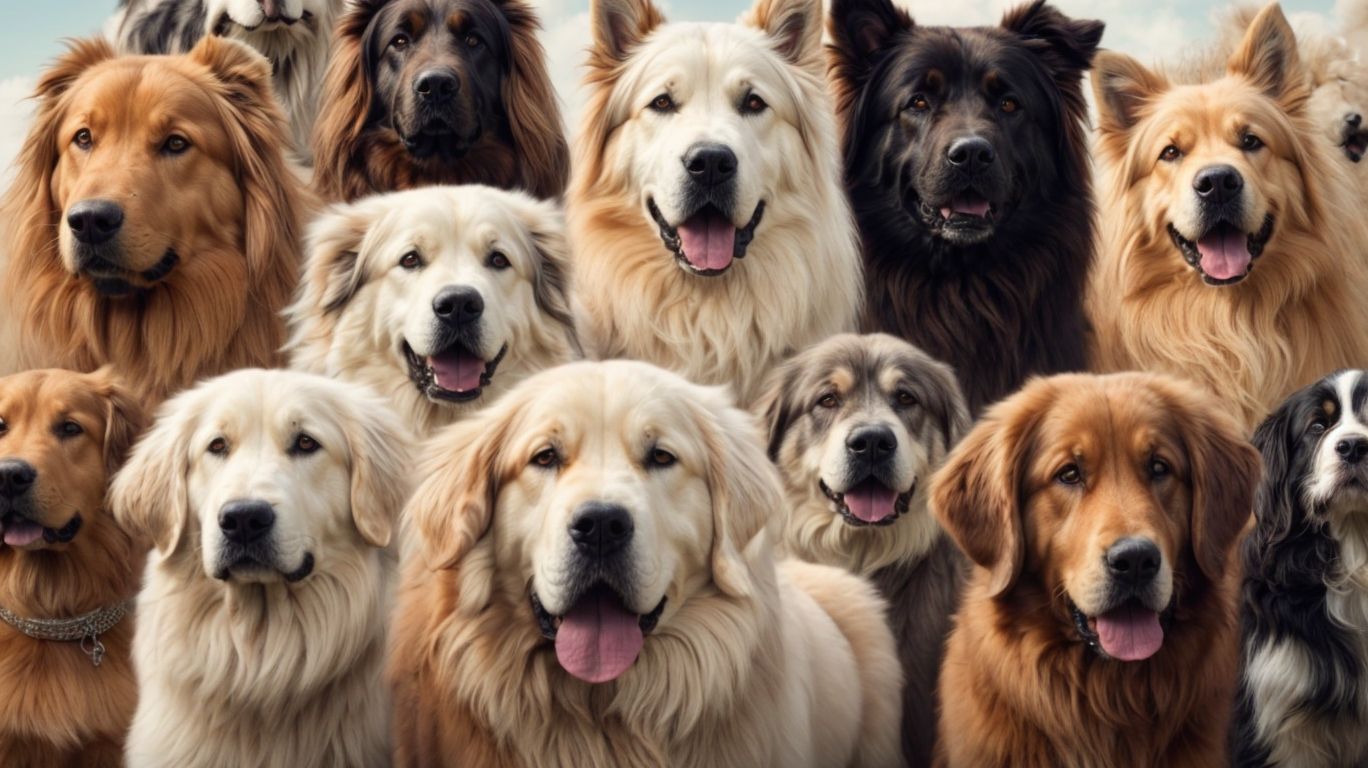
At What Age is Your Dog Considered Senior? Understanding the Life Stages
As dog owners, it’s important to understand the different stages of a dog’s life in order to provide them with the best care at each phase. From the playful puppy stage to the golden years of seniorhood, each stage requires different levels of attention and care.
In this article, we will explore the various life stages of a dog, including the signs of aging and common health issues that may arise in senior dogs. We will also discuss how to properly care for a senior dog to ensure they live a happy and healthy life. So, if you want to learn more about how to best care for your furry companion as they age, keep reading!
Understanding Dog Life Stages
Understanding dog life stages is crucial for providing appropriate care and addressing the evolving needs of your pet as it grows.
What Are The Stages Of A Dog’s Life?
A dog’s life consists of several distinct stages, including the puppy stage, adolescent stage, adult stage, and senior stage, each characterized by unique developmental milestones and care requirements.
Puppy Stage (0-6 Months)
The puppy stage, spanning from birth to six months, is a critical period for a dog’s growth, development, and socialization, laying the foundation for its future well-being.
During this stage, puppies undergo crucial developmental milestones, including teething, coordination, and learning social cues. Proper care and attention are essential for their physical and mental well-being.
Socialization with other dogs and people helps them become well-adjusted adults. Training sessions, incorporating positive reinforcement, are vital in shaping desired behavior. Timely vaccinations protect puppies from various diseases, ensuring their overall health.
It’s important to provide a safe environment, a balanced diet, regular exercise, and mental stimulation to support their growth and development.
Adolescent Stage (6 Months – 2 Years)
The adolescent stage, spanning from six months to two years, marks a period of significant behavioral and physical changes as the dog transitions towards maturity, requiring consistent training and guidance.
During this stage, dogs often experience a surge in energy levels and may exhibit increased exploratory behaviors, testing their boundaries and displaying signs of independence.
It’s crucial for pet owners to remain patient and continue reinforcing obedience training to manage these new challenges effectively. Addressing potential maturity-related challenges such as hormonal changes, can help prevent behavioral issues from developing in the future. Understanding and accommodating the evolving needs of adolescent dogs can greatly contribute to a smoother transition into the adult stage.
Adult Stage (3-6 Years)
The adult stage, from three to six years, represents the prime of a dog’s life, characterized by stable behavior, physical fitness, and overall health. This period requires consistent exercise and preventive care to maintain their well-being.
During this stage, adult dogs may have established their preferences in terms of exercise routines. It’s important to tailor these routines to suit their specific breed and energy levels.
Regular check-ups with a veterinarian are crucial for maintaining their health, as they are more prone to age-related conditions. These may include joint issues, dental problems, and weight management.
A balanced diet, enriched with essential nutrients, contributes to their well-being and supports their overall vitality.
Proactive preventive measures, including vaccinations and parasite control, are pivotal in ensuring their longevity and quality of life.
Senior Stage (7+ Years)
The senior stage, beginning at seven years and beyond, is a phase marked by aging-related changes, requiring specialized care, attention to health issues, and support for overall well-being.
During this stage, senior dogs often experience a decrease in energy levels, joint problems, and changes in their cognitive functions. As they age, their immune system may weaken, making them susceptible to various health issues.
It’s crucial to address age-related challenges through regular veterinary check-ups, a balanced diet tailored to their changing nutritional needs, and appropriate exercise routines to maintain mobility and prevent obesity. Special attention should be given to dental care, as dental problems can escalate with age and affect their overall health.
At What Age Is Your Dog Considered A Senior?
Determining when a dog is considered a senior depends on various factors such as breed, size, and individual health, with larger breeds generally reaching senior status earlier than smaller ones.
What Factors Determine A Dog’s Age?
Several factors, including breed, size, and individual health, play a crucial role in determining a dog’s age and transitioning into different life stages, such as adulthood and senior status.
Breed significantly influences a dog’s lifespan, with certain breeds displaying longer life expectancies than others. Large breeds tend to age at a faster rate compared to smaller breeds, reaching their senior years earlier.
The presence of specific health conditions, such as joint issues or dental problems, can impact how a dog ages. Understanding these factors is essential for providing appropriate care and adjusting lifestyle and healthcare measures as a dog transitions through different life stages.
How To Tell If Your Dog Is A Senior?
Identifying signs of aging in dogs involves monitoring changes in behavior, cognitive function, and physical abilities, providing insights into their transition to the senior stage.
What Are The Signs And Symptoms Of Aging In Dogs?
Common signs of aging in dogs include decreased activity, changes in appetite, reduced cognitive function, and mobility issues, serving as indicators of the transition to the senior stage.
As dogs age, they may exhibit behavioral changes such as increased irritability, anxiety, or confusion. Cognitive decline can manifest as disorientation, forgetfulness, or difficulty in learning new commands.
Senior dogs may experience challenges in their mobility, including stiffness, lameness, or reluctance to engage in physical activities they previously enjoyed. Recognizing these signs is crucial for assessing the overall well-being of senior dogs and providing appropriate care to support them through their aging journey.
What Are The Common Health Issues In Senior Dogs?
Senior dogs often experience common health issues such as arthritis, dental problems, cognitive dysfunction, and a higher risk of cancer, requiring proactive management and preventive care to maintain their well-being.
Arthritis
Arthritis is a common health concern in senior dogs, characterized by joint pain, stiffness, and reduced mobility, often requiring specialized care, joint supplements, and mobility aids for management.
As a dog owner, it’s crucial to keep a close eye on your senior furry companion for any signs of arthritis. Detecting it early allows for timely intervention, which can greatly reduce discomfort. A well-rounded joint health regime, including regular exercise, weight management, and a balanced diet with Omega-3 fatty acids, can also help alleviate arthritis symptoms.
Additionally, providing soft bedding and warm resting areas can minimize joint stress. Mobility aids such as ramps, orthopedic beds, and supportive harnesses are also essential in helping senior dogs maintain an active and fulfilling lifestyle despite their arthritis.
Dental Problems
Senior dogs are prone to dental issues such as tooth decay, gum disease, and oral infections, necessitating regular dental care, professional cleanings, and proper grooming practices for oral health maintenance.
This is particularly important as senior dogs often struggle with maintaining good oral hygiene due to factors such as decreased mobility and potential age-related health issues. Without proper care, these dental problems can lead to discomfort, difficulty eating, and even more serious health complications.
Regular brushing, appropriate chew toys, and veterinary check-ups can help prevent and address these issues, ensuring that senior dogs can enjoy a better quality of life in their golden years.
Cognitive Dysfunction
Cognitive dysfunction in senior dogs encompasses changes in memory, learning, and behavior, requiring mental stimulation, veterinary evaluation, and specialized care to address cognitive decline.
This developmental stage can bring about challenges in adapting to new environments, learning new tricks, and processing sensory information.
It is crucial for senior dogs to receive regular veterinary check-ups to assess their cognitive function and detect any developing conditions early.
Implementing activities that engage the mind, such as puzzle toys and training exercises, can help mitigate cognitive decline and maintain mental acuity.
Tailored care plans incorporating dietary adjustments and environmental enrichment can also support overall cognitive well-being in senior dogs.
Cancer
Senior dogs are at an increased risk of developing various forms of cancer, necessitating proactive veterinary care, wellness exams, and early detection measures to address cancer-related health concerns.
As dogs age, their susceptibility to cancer grows, making regular check-ups and screenings crucial for timely intervention. Engaging in a collaborative approach with your veterinarian can help in identifying any potential warning signs and initiating prompt treatment.
Routine wellness exams and proactive monitoring can aid in detecting cancer at early stages, which can significantly improve the effectiveness of treatment options and enhance the overall quality of life for senior dogs. By addressing cancer-related concerns through proactive veterinary care, pet owners can provide their aging companions with the best possible chance for a healthy and fulfilling life.
How To Take Care Of A Senior Dog?
Proper care for a senior dog involves ensuring balanced nutrition, regular exercise, veterinary check-ups, and specialized attention to address age-related health issues, promoting their overall well-being and quality of life.
Proper Nutrition
Senior dogs require a tailored diet comprising senior dog food, nutritional supplements, and weight management strategies to address their changing dietary needs and promote overall health.
This specialized diet should include reduced calories to accommodate their lower activity levels and prevent obesity, as well as increased levels of antioxidants, omega-3 fatty acids, and joint-supportive nutrients to address common issues like arthritis and cognitive decline.
Senior dog food formulas are specifically designed to support their aging bodies, with carefully balanced levels of protein, fiber, and essential vitamins and minerals. Incorporating dietary supplements such as glucosamine and chondroitin can aid in maintaining joint health, and omega-3 fatty acids can contribute to cognitive function and overall well-being.
Regular Exercise
Regular exercise plays a vital role in maintaining the mobility, joint health, and overall fitness of senior dogs. This is often supplemented with tailored activities and the use of mobility aids to support their physical well-being.
This is especially essential for senior dogs as they may experience a decline in mobility and flexibility due to aging. By engaging in regular exercise, senior dogs can improve their muscle strength and joint flexibility, reducing the risk of arthritis and other age-related conditions.
Exercise helps in maintaining a healthy weight, which is crucial for preventing obesity-related health issues. It also provides mental stimulation and contributes to their overall well-being, keeping them agile and active in their golden years.
Regular Veterinary Check-ups
Regular veterinary check-ups, wellness exams, and preventive care are essential for senior dogs to monitor their health, address potential issues, and ensure timely vaccinations for disease prevention.
Regular assessments and examinations are essential for identifying age-related health concerns in senior dogs. These may include arthritis, dental issues, and cognitive decline.
As dogs age, their needs may change, requiring adjustments in their diets, exercise routines, and medications. By staying proactive with veterinary care, pet owners can help their senior dogs maintain a high quality of life and age gracefully.
Specialized Care For Health Issues
Senior dogs may require specialized care tailored to address specific health issues such as grooming, dental care, and the use of supplements to manage age-related conditions and enhance their quality of life.
This attention to specialized care becomes increasingly important as dogs age and require more frequent grooming to maintain coat health and cleanliness.
Dental maintenance is crucial because older dogs are prone to dental issues that can lead to pain and difficulty eating. The use of supplements such as glucosamine for joint health and omega-3 fatty acids for cognitive function can significantly contribute to their overall well-being, ensuring they continue to enjoy a comfortable and active lifestyle.




No Comments